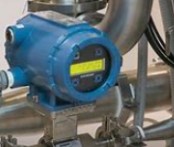
Distributed Control Systems in Oil/Gas Facilities
• DCS is a control system where components are distributed around process areas, operating as independent units.
• Single-loop controllers and computers work together as one system, with analog-to-digital and digital-to-analog converters built into the controllers and computers.
• DCS can handle multiple control loops, and once the memory is configured for individual control loops, the controller will service its control loops using the last instructions received.
• Advantages and disadvantages of DCS are covered, including the layout and architecture of the PCU cabinet.
• The Operator Interface and Controller communicate over a data link, typically a network, to issue instructions.
• Concerns about network failure and loss of communications arise, requiring two Network coaxial cables.
• The Distributed Control Concept addresses two major problems: additional computers required for continuous production and extended data communication paths leading to data corruption and system integrity loss.
• The system database typically consists of inputs and outputs, with transmitter at one end and control valve at the other.
• Outputs to and from end elements inputs/outputs will be some form of electrical signal.
• The Distributed Control System (DCS) addresses the challenges of large computers and the need for a comprehensive database, configuration, and graphics to ensure efficient and reliable control.




